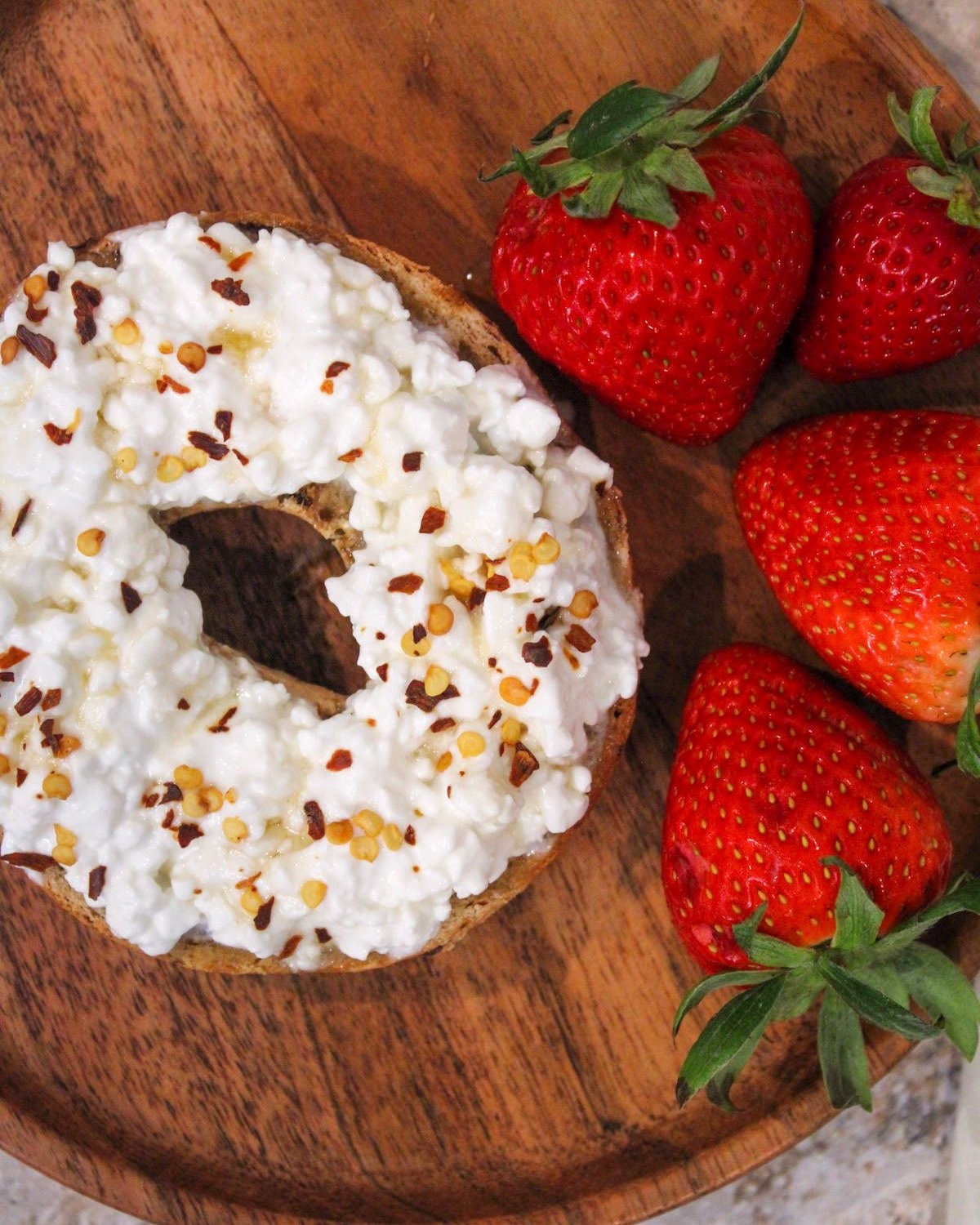Cottage Cheese Vs. Ricotta Cheese: What’s the Difference?
While they may appear eerily similar, there are actually a few notable differences between these two creamy cheeses. In this blog we will cover the differences between cottage cheese versus ricotta cheese and find out which cheese you should use and when!
With the influx of cottage cheese recipes, you may be wondering why people are choosing cottage cheese over its almost identical twin, ricotta cheese. If you have been wondering about the differences between cottage cheese vs ricotta cheese, this blog is for you!
Hey, I'm Lauren. I'm a registered dietitian on a mission to keep as many foods, like dairy products, on your plate as possible! Both cottage cheese and ricotta cheese are two delicious dairy products that can be on your plate, but these two cheese are not created equal.
While they do appear very similar to one another, there are actually quite a few differences between ricotta cheese and cottage cheese. The main differences you will find between them lie in: how they are made, their nutritional content, flavor, texture, and use in recipes.
This blog will do a dive into these differences between cottage cheese vs ricotta cheese and show you which cheese to choose and when!
Cottage cheese versus ricotta cheese: what’s the difference?
How they’re made:
Like other cheeses, both cottage cheese and ricotta cheese come from the process of coagulating milk. While both of these cheeses can be made from a variety of different mammals milk, they are most commonly made from coagulated cows milk.
What is coagulated milk? Good question! Coagulation is when an acid, enzyme, and maybe some heat is added to fluid milk which eventually separates the milk into two components: liquid whey and milk solids (known as the curd).
This is difference number one between cottage cheese versus ricotta cheese, and it lays the foundation for many of the differences to follow!
How cottage cheese is made: Cottage cheese is just one of many cheeses that are made from the milk solids component of coagulated milk.
For cottage cheese, the producers take the milk solids (the curd) and process it further to remove more of the liquid whey. It’s then compacted and pressed to expel even more of the liquid whey then it is rinsed and salted resulting in cottage cheese.
How ricotta cheese is made: Ricotta cheese, on the other hand, is made from the liquid whey component of coagulated milk instead of the milk solids.
Producers take the liquid whey of coagulated milk, reheat (or add another acid) it until it again coagulates into liquid whey and solids, and then strain and press those solids from the second coagulation process into the traditional ricotta cheese texture.
In short, cottage cheese is made from the initial milk solids while ricotta cheese is made from further processing the initial liquid whey of coagulated milk.
LTN fun fact: Ricotta cheese actually means “re-cooked,” which refers to the second coagulation of the liquid whey.
Nutritional differences:
Another primary difference between ricotta cheese and cottage cheese is in their nutrition, and alot of those differences goes back to how the cheeses were made. Here’s a look at the general nutrition of 100 grams of cottage cheese versus ricotta cheese:
Now, these are just approximate numbers gathered from the USDA nutrient database and brands will vary. Here are the primary differences to note:
Calories: Cottage cheese is typically lower in calorie than ricotta cheese. My table above compares 100 grams of whole milk cottage cheese vs 100 grams of whole milk ricotta cheese, you could definitely find lower calorie options by choosing low fat dairy products.
Protein: Cottage cheese is higher in protein than ricotta cheese with some brands boasting over 18 grams of protein per 1/2 cup serving. You can find double cream ricotta cheese which will be slightly higher in protein content, but cottage cheese is still the better choice for protein.
Sodium: Cottage cheese is higher in sodium than ricotta cheese is. Sodium is added to cottage cheese during processing to add flavor, preserve texture, and protect food safety.
Calcium: Ricotta cheese is much higher in calcium than cottage cheese is. This goes back to how these two cheeses were made, with most of the calcium staying in the liquid whey portion of the coagulated milk which is used to make ricotta cheese cheese.
Potassium: Ricotta cheese is higher in potassium content than cottage cheese.
As you can see, there are quite a few nutritional differences between cottage cheese and ricotta cheese. Your personal preference and dietary needs could play a role in which of these creamy cheeses you choose to use!
Texture and flavor:
In the debate between ricotta vs cottage cheese, flavor likely will not be a big selling point for you as both of them boast a mild flavor that easily incorporates into a variety of recipes.
There are a few mild flavor differences that some people may notice. Slight differences in flavor would be that ricotta cheese has a slightly sweeter flavor while cottage cheese contains a bit of a saltier bite.
While they are similar in flavor, a larger difference between these two cheeses is actually in the texture. Typically, cottage cheese comes in much larger curds than the traditional, smoother texture of ricotta cheese. Some brands of cottage cheese do make small curd products, but they are still larger than ricotta cheese and make for a lumpier bite.
These differences in texture could dictate which cheese you choose for your recipes. Ricotta cheese has a smoother texture making it a great addition to toasts, lasagnes, and dips. Cottage cheese has a lumpier texture and could add a unique addition to salads, snacks, and pastas.
How to choose between cottage cheese vs ricotta cheese:
Now that we have summarized a few of the differences between ricotta cheese and cottage cheese, let’s summarize when to choose which cheese and when. In reality, these two cheese can often be used as substitutes for one another but there are pro’s and con’s of each.
As a dietitian, these are some of the factors I would consider when choosing your cheese:
Choose cottage cheese when:
You want a product that is lower in calorie.
You want to eat more protein.
You want to build a balanced snack by pairing a protein with a carbohydrate base.
You are following a special diet, like a renal diet, that requires lower phosphorous and potassium. (often times, dairy products will be almost entirely removed from these diets.)
You want to add an interesting texture to your recipe.
Choose ricotta cheese when:
You are trying to lower your sodium intake.
You need a smoother cheese for your recipe. (You may also blend cottage cheese into a smooth texture.)
You need to increase your calcium intake. Ricotta cheese has almost twice the amount of calcium than cottage cheese does.
You trying to increase your calorie intake.
Again, these cheeses are actually great substitutes for one another but there are a few differences that could change up your choice. Of course, personal preference plays a role in this decision as well. Be sure to consider your own dietary needs when choosing which cheese works best for you!
The takeaway:
In the debate between cottage cheese vs ricotta cheese, there really is no winner as they are both excellent options that have different pro’s and con’s.
Cottage cheese is an excellent choice if you are looking for a product that boosts the protein content of your meal, adds a creamy texture, or makes for a nutritious grab and go snack.
Ricotta cheese could be the option for you if you want to add a creamy texture to your recipes, cut back on your sodium, or add more calcium to your diet.
No matter which cheese your choose, both ricotta cheese and cottage cheese are nutritious dairy products that add texture, flavor, and health promoting nutrients to your meals and snacks.
*These blogs may contain affiliate links. Any purchase made through my links gives me a small commission and supports Lauren Twigge Nutrition.Hey! I’m Lauren
I’m a Registered Dietitian and busy toddler mom committed to bringing you delicious, nutritious, and easy-to-make recipes!







